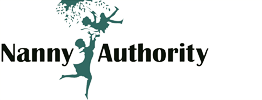Choosing a preschool can be overwhelming since there are so many varying philosophies and styles for parents to take into consideration. There are also a number of personal factors that need to be taken into account as well, such as the cost, location, and importantly, the specific needs of the child. Two philosophies that parents frequently research are the Montessori and Waldorf Philosophy, which continue to remain popular around the world with early childhood professionals. While they both engage in similar teaching methods, they also vary in certain respects. Below is more information on the principles that comprise each style.
The Montessori Method
The Montessori method first came into fruition with Dr. Maria Montessori in 1907 at the Casa dei Bambini, the Children’s House, a tenement building in Rome. Dr. Montessori developed an educational approach based on the model of human development. She has said that caregivers “must help the child to act for himself, will for himself, think for himself.” It began to spread to the United States in 1912 but started to take off in 1960. The five basic principles that comprise the Montessori method are as follows:
Respect for the Child:
This is the foundation for the other Montessori principles. Educators show respect for children when they give their pupils options to choose from. From these choices, they are able to develop and hone the skills and abilities necessary for effective learning and positive self-esteem. Respect also covers a variety of relationships, including the child’s respect for the adult, the child’s respect for other children, and mutual respect. It is common to hear adults judging children instead of being curious about why a child is acting a specific way. Instead, teachers should try harder to be less judgmental and understand their behavior.
The Absorbent Mind:
Dr. Montessori believed that children are born to learn, and as a result, teach themselves through real-life experiences. However, what they teach themselves depends on their teachers, experiences, and environments.
Sensitive Periods:
Sensitive periods refer to a moment in a child’s development when their brains are more susceptible to learning a specific skill. The sequence and timing differ for each child. It is up to the educator to detect sensitive periods and provide the setting for optimal fulfillment for the child.
The Prepared Environment:
The prepared environment is an environment, classroom, or home specifically designed with the child’s well-being in mind. It is composed of six principles, which are freedom, structure and order, beauty, nature and reality, social environment, and the intellectual environment.
Autoeducation:
Autoeducation, or self-education, is the concept that children have the ability of teaching themselves. This is where the prepared environment becomes useful.
The early education teacher has an integral role in the child’s development and growth process at Montessori facilities. A key part of the curriculum is placing the child at the forefront of learning, and introducing the appropriate materials and supplies that support their education. Additionally, childcare professionals should ensure children have the best environment to flourish in. To do this, educators should carefully study children during playtime and determine how they can best help them achieve their goals.
The Waldorf (Steiner) Philosophy
The first Rudolf Steiner school was established in New York City in 1928. Steiner believed that education should be holistic and free from class lists, examinations, compulsory homework, and prizes or honors. While the Steiner method, also commonly referred to as the Waldorf philosophy, possesses companion views to the Montessori method, it stresses the importance of a child’s imagination and fantasy rather than knowledge through real-life interactions. The educational style operates on a number of essential principles, such as the four below:
Anthroposophy:
Anthroposophy is the basic principle of the philosophy. It is derived from the Greek words: anthros “man” and sophia “wisdom.” This system seeks to utilize largely natural means to optimize physical and mental health and well-being.
Respect for development:
There is no developmental timetable for children to follow in the Waldorf method. An individual’s growth determines how and when Waldorf educators introduce educational topics.
Eurythmy:
Eurythmy is Steiner’s art of movement. Every sound, whether it is via speech or music, can be interpreted through gesture and body movement. For example, as children discover the letters of the alphabet, they form the letter with their arms while sounding it out.
Nurturing imagination:
The Waldorf curriculum is favorable to including folk and fairy tales, fables, and legends. Steiner believed that a child that reads fairy tales will have an active imagination, be creative, and grow up to be a free thinker.
The educators at Waldorf school teach according to developmental stages, the right subject at the right time. This coincides with the introduction of several basic skills. Children also have the freedom to create their own lesson plans for each subject.
Contact the Nanny Authority for More Information Today
In the end, parents should do what is best for their family and child. Both methods have appealing principles but what works for one child may not necessarily work for another individual. For assistance in making a decision that works for your family, contact us via e-mail or at 973-466-2669 for more information today!

